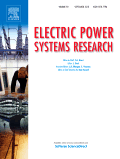
ELECTRIC POWER SYSTEMS RESEARCH
Scope & Guideline
Transforming Research into Sustainable Energy Solutions
Introduction
Aims and Scopes
- Power System Stability and Control:
Research on stability analysis, control strategies, and protective measures for ensuring reliable operation of both AC and DC power systems, especially in the context of renewable energy integration. - Renewable Energy Integration and Management:
Studies focusing on the integration of renewable energy sources such as wind, solar, and hydro into existing power grids, including the optimization of energy management systems. - Smart Grids and Cyber-Physical Systems:
Exploration of smart grid technologies, including demand response, distributed energy resources, and the application of advanced communication and control techniques in power systems. - Load Forecasting and Demand Response:
Innovative methods for load forecasting using machine learning and AI, alongside strategies for demand-side management to enhance system reliability and efficiency. - Power Quality and Reliability:
Research addressing power quality issues, including harmonic distortion, voltage sags, and other disturbances, with a focus on improving the overall reliability of power systems. - Fault Detection and Diagnosis:
Development of advanced techniques for fault detection, classification, and location in power systems to enhance the resilience and reliability of electrical networks. - Optimization Techniques in Power Systems:
Application of optimization algorithms and methodologies for enhancing the performance of power systems, including unit commitment, economic dispatch, and network reconfiguration.
Trending and Emerging
- Hybrid Energy Systems and Microgrids:
Research on hybrid energy systems, particularly those combining renewable sources with storage and flexible loads, is gaining traction as microgrids are recognized for their potential in enhancing energy resilience. - Data-Driven Approaches and Machine Learning Applications:
There is a significant increase in studies leveraging data-driven methodologies and machine learning techniques for various applications, including load forecasting, fault detection, and optimization in power systems. - Cybersecurity in Smart Grids:
With the increasing digitization of power systems, research focused on cybersecurity measures to protect against threats and vulnerabilities in smart grid infrastructure is emerging as a critical area of study. - Decentralized Energy Markets and Peer-to-Peer Trading:
Emerging interest in decentralized energy markets and peer-to-peer trading models reflects a shift towards more participatory and flexible energy systems that empower consumers. - Resilience and Adaptability in Power Systems:
Growing emphasis on the resilience of power systems against natural disasters and cyber threats indicates a trend towards developing frameworks that ensure system adaptability under various conditions.
Declining or Waning
- Conventional Power Generation Technologies:
Research on traditional fossil fuel-based power generation methods has seen a decline as the field shifts focus towards renewable and sustainable energy sources. - Static Modeling Techniques:
Static modeling approaches for power flow analysis are becoming less prevalent as more researchers adopt dynamic and real-time simulation techniques that better capture the complexities of modern power systems. - Single-Objective Optimization Models:
There is a noticeable shift towards multi-objective optimization approaches, indicating that simpler single-objective models are being phased out in favor of more comprehensive frameworks that consider multiple conflicting objectives. - Centralized Energy Management Systems:
The trend is moving towards decentralized and distributed energy management systems, reflecting a waning interest in centralized approaches that may not accommodate the flexibility required in modern energy systems. - Basic Protection Schemes:
Traditional protection schemes are increasingly being replaced by more advanced, adaptive protection strategies that consider the integration of distributed generation and renewable resources.
Similar Journals

Power Electronics and Drives
Advancing the Future of Power ElectronicsPower Electronics and Drives is a leading journal dedicated to advancing the field of power electronics, encompassing a wide range of topics including converter designs, motor drives, and renewable energy applications. Published by SCIENDO, this journal has been proudly open access since 2016, making cutting-edge research accessible to scholars and practitioners around the globe. With a commitment to high-quality publication, Power Electronics and Drives serves as a crucial platform for researchers, professionals, and students to share their findings, fostering collaboration and innovation within the community. The journal aims to bridge the gap between theory and practical applications, thus playing an essential role in shaping the future of power electronic systems and their integration into various technologies. Located in Warsaw, Poland, this journal is poised to contribute significantly to the field and enhance knowledge dissemination across international boundaries.

Journal of Power Technologies
Pioneering Research in Power EngineeringJournal of Power Technologies is a prestigious academic journal dedicated to advancing the field of power engineering, specifically focusing on innovative technologies and methodologies related to energy production, transmission, and efficiency. Published by the renowned Warsaw University of Technology, Institute of Heat Engineering, this journal is committed to disseminating high-quality research that addresses the challenges and opportunities in the energy sector. Although currently not open access, the journal provides extensive subscription options for access to its comprehensive range of articles. With an emphasis on original research, case studies, and reviews, the Journal of Power Technologies serves as a vital resource for researchers, practitioners, and students alike, aiming to shape the future of sustainable power systems and contribute significantly to the global energy discourse. The journal continues to foster an academic environment where innovation in power technology is highlighted and celebrated, supporting the ongoing quest for sustainable energy solutions.

Journal of Control Automation and Electrical Systems
Championing Interdisciplinary Research in Control AutomationThe Journal of Control Automation and Electrical Systems, published by SPRINGER, is a prominent academic journal dedicated to advancing research in the interdisciplinary fields of control systems, automation, and electrical engineering. With an ISSN of 2195-3880 and E-ISSN of 2195-3899, this journal has emerged as a vital platform for disseminating high-quality research, contributing significantly to both theoretical and applied aspects of these interrelated domains. As of 2023, it ranks in the Q2 and Q3 quartiles across multiple categories, including Electrical and Electronic Engineering and Energy Engineering, showcasing its relevance and impact in the field. Although not an open-access journal, it provides rich access options for research works, ensuring that findings reach a wide audience. Researchers, professionals, and students alike can draw valuable insights from its curated articles that explore emerging trends, innovative technologies, and practical applications, thus reinforcing its position as a key contributor to the advancement of control and automation systems.

Journal of Modern Power Systems and Clean Energy
Unleashing Potential in Power Systems and Sustainable Practices.Journal of Modern Power Systems and Clean Energy is a leading academic platform dedicated to advancing the fields of energy engineering, power technology, and renewable energy. Published by the prestigious STATE GRID ELECTRIC POWER RESEARCH INSTITUTE in China, this Open Access journal has been a significant contributor to the dialogue on sustainable energy solutions since its inception in 2013. With a Q1 ranking in both the Energy Engineering and Power Technology and Renewable Energy, Sustainability and the Environment categories, it serves a crucial role for researchers and professionals striving to push the boundaries of innovation in power systems and clean energy technologies. The journal’s impact is reflected in its impressive Scopus rankings, placing it in the top 10% of its categories, making it an invaluable resource for academia and industry alike. The Journal of Modern Power Systems and Clean Energy invites submission of original articles, reviews, and case studies that resonate with its mission of promoting sustainability and addressing contemporary energy challenges.

Revue Roumaine des Sciences Techniques-Serie Electrotechnique et Energetique
Driving progress in Electrical Engineering and Energy studies.Revue Roumaine des Sciences Techniques-Serie Electrotechnique et Energetique is a distinguished journal published by EDITURA ACAD ROMANE, focusing on the vital fields of Electrical and Electronic Engineering and Energy studies. With a notable history since its inception in 1969, this journal serves as a significant platform for disseminating research and advancements in these disciplines, particularly within the context of Romanian and broader European scientific communities. Although it operates on a traditional access model, it maintains relevance with a Q3 quartile ranking as of 2023 in both the Electrical and Electronic Engineering and Energy categories. With its inclusion in Scopus rankings indicating its growing influence, Revue Roumaine des Sciences Techniques actively contributes to the body of knowledge, providing valuable insights and fostering innovations that resonate with researchers, professionals, and students alike. The journal encourages submissions that address contemporary challenges and developments in technology and energy management, facilitating a collaborative exchange of knowledge that is crucial for both academic and practical applications.
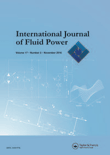
International Journal of Fluid Power
Connecting Researchers and Practitioners in Fluid DynamicsThe International Journal of Fluid Power, equipped with the ISSN 1439-9776 and E-ISSN 2332-1180, is a premier scholarly publication dedicated to advancing the field of fluid power technology. Published by RIVER PUBLISHERS in Denmark, this journal serves as a vital platform for researchers, professionals, and students alike, offering insights into cutting-edge developments in mechanical engineering and physics related to fluid power systems. With a commendable Q3 ranking in both Mechanical Engineering and Physics & Astronomy (miscellaneous) categories for 2023, it reflects a growing influence within the scientific community. The journal engages with various critical aspects of fluid power, including both theoretical approaches and practical applications, thus fostering knowledge exchange and collaboration. With a focus extending from 2000 to 2024, the International Journal of Fluid Power is poised to inspire innovation and excellence within this dynamic field.
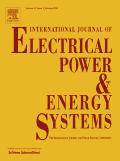
INTERNATIONAL JOURNAL OF ELECTRICAL POWER & ENERGY SYSTEMS
Fostering Sustainable Solutions in Power TechnologyINTERNATIONAL JOURNAL OF ELECTRICAL POWER & ENERGY SYSTEMS, published by ELSEVIER SCI LTD, stands at the forefront of electrical and energy engineering research, boasting an exceptional impact factor and recognition as a Q1 journal in both Electrical and Electronic Engineering and Energy Engineering and Power Technology as of 2023. Since its inception in 1979, this prestigious journal has dedicated itself to advancing the field through rigorous peer-reviewed articles, fostering innovation and collaboration among researchers, professionals, and students. With a commendable Scopus ranking—#60 in Electrical Engineering and #28 in Energy Engineering—this journal serves as an essential platform for disseminating groundbreaking findings and methodologies. Beginning in 2024, it will embrace Open Access, thereby expanding its reach and accessibility to a global audience, reinforcing its commitment to sharing knowledge and driving progress in sustainable energy systems.
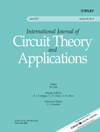
INTERNATIONAL JOURNAL OF CIRCUIT THEORY AND APPLICATIONS
Elevating Standards in Circuit Theory and ApplicationsINTERNATIONAL JOURNAL OF CIRCUIT THEORY AND APPLICATIONS serves as a premier platform for researchers and practitioners in the fields of applied mathematics, electrical and electronic engineering, and materials science. Published by Wiley, this esteemed journal, with an ISSN of 0098-9886 and an E-ISSN of 1097-007X, has been in circulation since 1973, providing insightful contributions and advanced research findings through 2024. It holds a commendable reputation across multiple disciplines, reflected in its 2023 ranking in the Q3 category across applied mathematics, computer science applications, and electronic materials. Researchers engaging with this journal can expect rigorous peer-reviewed articles that address both theoretical and practical implications, thereby fostering advancements in circuit theory and its multitude of applications. While the journal is not open access, it continues to play a significant role in disseminating high-caliber research crucial for scholars and professionals alike.
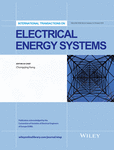
International Transactions on Electrical Energy Systems
Illuminating Pathways in Electrical Energy SystemsInternational Transactions on Electrical Energy Systems is a distinguished peer-reviewed journal published by WILEY-HINDAWI, focusing on the dynamic field of electrical energy systems. With an impactful reach, this journal, with ISSN 2050-7038, has established itself as a prominent resource for researchers and practitioners in electrical and electronic engineering, energy engineering, and power technology since its inception in 2012. As of 2022, the journal transitioned to an Open Access model, ensuring widespread accessibility to cutting-edge research and advancements. It is recognized for its strong academic standing, holding a Q2 quartile ranking across multiple disciplines, including modeling and simulation. The journal's Scopus ranks reflect its influence, with rankings in the 76th to 87th percentiles across various fields. The International Transactions on Electrical Energy Systems is dedicated to fostering innovation and encouraging collaboration within the energy community, making it an essential platform for knowledge dissemination and discussion.
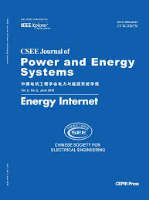
CSEE Journal of Power and Energy Systems
Bridging Disciplines for a Greener TomorrowCSEE Journal of Power and Energy Systems is a leading peer-reviewed academic journal published by the China Electric Power Research Institute, dedicated to advancing innovations in the fields of electrical and electronic engineering, energy systems, and materials science. With an impressive impact factor and recognition as a Q1 journal in its respective categories in 2023, it ranks among the top in Electrical and Electronic Engineering, Electronic, Optical and Magnetic Materials, and General Energy, showcasing its critical role in disseminating high-quality research. Since its transition to Open Access in 2015, the journal has made significant scholarly work freely accessible to researchers, professionals, and students globally, promoting collaboration and knowledge sharing across disciplines. The journal invites contributions that address contemporary challenges and innovations in power and energy systems, reflecting its commitment to supporting the sustainable development of energy resources and technologies.